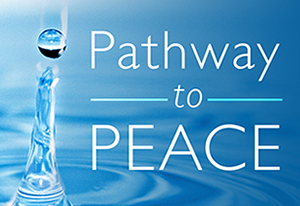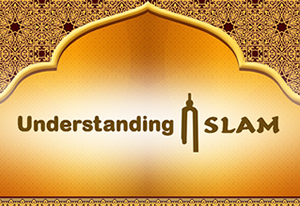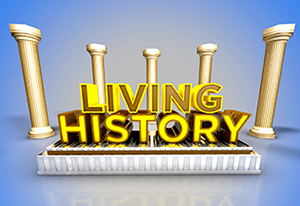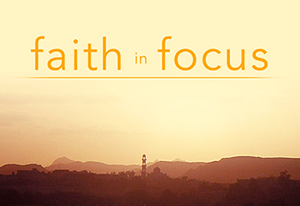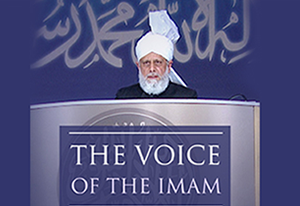Thursday
00:00Thursday
Repeat of a live interactive show recorded on 23rd June 2022.
Learn more01:00Thursday
A chance to listen to a repeat of a live news discussion programme recorded on 20th July 2024.
Learn more03:00Thursday
Series 3. Episode 1. Philosophy of the Teachings of Islam. Tune in to learn about the teachings of Islam. Tahir Selby is joined by Alex Borthwick and Farhan Ali to discuss the book 'Philosophy of the Teachings of Islam' by Hazrat Mirza Ghulam Ahmad a.s. To help understand the book easier, questions have been made from the book and then they are discussed. In this programme they will discuss the first part of Question One - The Physical, Moral and Spiritual States of Man, taken from the pages 1 - 49 and covers:- The 3 stages of natural states; The Soul; Progress of man; Pork, Chastity, etc.
Learn more04:00Thursday
A chance to listen to a repeat of a topical discussion programme recorded on 30th July 2024. Forced Labour: Forced labor remains a widespread issue, affecting millions globally, including children, from Uzbekistan's troubling cotton industry to other sectors. This issue presents moral dilemmas for budget-conscious shoppers. We'll explore its impacts on victims, the fight against it through new laws and international pressure, and the challenges of ethical shopping amid ultra-cheap goods and aggressive marketing. Friendship:Research study shows that friendships are crucial for our wellbeing and having strong friendships is a indicator of a healthy life.
Learn more06:00Thursday
Inspirational story of how Tahir Selby accepted Islam Ahmadiyyat.
Learn more06:30Thursday
Tune is to hear recitation of the Holy Qur'an, Chapter 4 Verse 25-44. Recitation of the Holy Qur'an is by Maulana Feroz Alam.
Learn more07:00Thursday
Wake up to the Breakfast Show and catch up with the latest news stories.
Learn more09:00Thursday
Season 5 Episode 2: This week, the team takes a journey through the historical narrative of how scientific discoveries and technological advancements were made during and after the Islamic Golden Age. How esteemed scientists leveraged the instructions of the Holy Qur'an to deepen human understanding of the universe and help civilisation progress. Moreover, the team reflects on some of the prophecies in the Qur'an about societal and technological progress and how the raising of the Promised Messiah (upon whom be peace) coincided with this.
Learn more10:00Thursday
Episode 15. Origins of the Great Mughal Empire. Part II. The achievements of the Great Mughals who followed Akbar, from Jahangir to Aurangzeb are discussed and the end of the Mughal Empire at the hands of the British.
Learn more11:00Thursday
Series 3. Episode 2. Philosophy of the Teachings of Islam. Tune in to learn about the teachings of Islam. Tahir Selby is joined by Farhan Ali and Ali Ahmad to discuss the book 'Philosophy of the Teachings of Islam' by Hazrat Mirza Ghulam Ahmad. To help understand the book easier, questions have been made from the book and then they are discussed. In this programme they will discuss the second part of Question One - The Physical, Moral and Spiritual States of Man, taken from the pages 50 - 73 and covers: Remedies against unchastity; Veil; Moral qualities; Doing good; Transgression, etc.
Learn more12:00Thursday
Episode 4. We will explore the clashes between culture and religion which lead to misconceptions about Islam and women’s rights. We’ll distinguish between the culture/politics of Islamic Republics and the true religious teachings of Islam as set out in the Holy Quran by comparing the oppressive laws of some countries in the name of Sharia Law, with the actual rights bestowed upon women in the Holy Qur’an by Allah Almighty. We’ll mention how in many cases, law itself evolves from religion and morality. Through doing so we’ll seek to combat the critiques of those who describe religious doctrine as outdated and instead prove that the Holy Qur’an is a scripture for all times.
Learn more13:00Thursday
Episode 2. Mental ill health is the single largest cause of disability in the UK, contributing up to 22.8% of the total burden. In this episode, we discussed the importance of developing mental wellbeing to prevent mental illness and what can we do if one develops the illness. We focused on when to seek help from doctors. How the family members or colleagues can play a role to pick up the problem early so that treatment can be initiated.
Learn more13:30Thursday
Inspirational story of how Mohmmad Amedu Salam accepted Islam Ahmadiyyat.
Learn more14:00Thursday
Episode 118. The responsibilities we shoulder in becoming parents are ones that we only truly learn about whilst on that journey having become parents. In this programme we will share guidance provided by Islam for those of us in this role and discuss the cycle of both duty and responsibility in family life. What are the new challenges facing us in this role and the new generation? What can we do to negate and minimise the negative implications of these challenges on our children whilst retaining happiness and keeping our relationships with our children strong?
Learn more15:00Thursday
Repeat of a live interactive show recorded on 28th January 2024.
Learn more16:00Thursday
Join in the debate of the day in this live interactive discussion programme. Sudan War: The conflict in Sudan is nearing its 16th month, resulting in tens of thousands of deaths and the displacement of millions, which international organizations describe as the world’s worst displacement crisis. Join us as we discuss the brutalities in Sudan and how the world needs to unite for conflict resolution. Gig Economy: Discover the gig economy in the UK, where over 4.7 million people engage in short-term, flexible work like driving for Uber, delivering with Deliveroo, or freelancing online. Uncover the realities of precarious employment and the fight for fair rights, with 60% of gig workers reporting job insecurity.
Learn more18:00Thursday
Episode 18. A historic address delivered by His Holiness Hazrat Mirza Masroor Ahmad, the Worldwide Head of the Ahmadiyya Muslim Community, at a special reception held to celebrate the opening of the Baitur Rahman Mosque in Vancouver, Canada on 18th May 2013.
Learn more18:30Thursday
Episode 2. This episode will serve as an introduction to the concept of FoRB. It will focus on the origins of FoRB, The origins of the concept of freedom of expression, freedom of religion in history & how it has evolved over time, the relevance it has played in history and where the key changes occurred historically to the rights of FoRB. In particular, we will focus on the early years of FoRB: The Romans tolerated most religions, including Judaism, and encouraged local subjects to continue worshipping their own gods. They did not however, tolerate Christianity until it was legalised by the Roman emperor Galerius in 311. Holmes and Bickers note that as long as Christianity was treated as a part of Judaism it enjoyed the same freedom, but the Christian claim to religious exclusivity meant its followers found themselves subject to hostility. The early Christian apologist Tertullian was the first-known writer referring to the term libertas religionis. The Edict of Milan guaranteed freedom of religion in the Roman Empire until the Edict of Thessalonica in 380, which outlawed all religions except Christianity. Following a period of fighting lasting around a hundred years before 620 AD which mainly involved Arab and Jewish inhabitants of Medina (then known as Yathrib), religious freedom for Muslims, Jews and pagans was declared by Prophet Muhammad (Peace and Blessing of Allah be upon him) in the Constitution of Medina. In early Muslim history (until mid 11th century), most Islamic scholars maintained a level of separation from the state which helped to establish some elements of institutional religious freedom. The Islamic Caliphate later guaranteed religious freedom under the conditions that non-Muslim communities accept dhimmi status and their adult males pay the jizya tax instead of the zakat paid by Muslim citizens.
Learn more19:00Thursday
Episode 16. Ottoman Empire. Part I. In this episode we take a look at the rise of the Ottoman Empire, exploring the origins from Osman I and the achievements up to Sultan Mehmed II, marking the conquest of Constantinople.
Learn more20:00Thursday
Episode 8. Our guest is Dr Asif Jamil who is a Researcher in Neuropsychiatry at Harvard Medical School & Department of Psychiatry at Massachusetts General Hospital (MGH). He completed his BSc in Neurobiology, MSc in Neuroimaging, and has 2 PhDs, one in systems neuroscience and the second in rehabilitation science. He has also recently completed his postdoctoral training, and his research focuses on development and application of device-based non-invasive neuromodulation to treat human neuropsychiatric disorders. He has recently been appointed September 2021 as a faculty member of Harvard Medical School (Instructor in Psychiatry) and a Principal Investigator at the Department of Psychiatry at Massachusetts General Hospital (MGH). We discuss brain states, how they affect our everyday life, mood, sleep and how to focus better.
Learn more21:00Thursday
Episode 120. Young people are constantly being told they are too optimistic or idealistic. This is something young people have always been told. What is it about being young which makes us optimistic? Is optimism a beneficial quality to have or does it only lead to disappointment? And most importantly do we lose optimism as we grow older?
Learn more22:00Thursday
A chance to listen to a repeat of a topical discussion programme recorded on 30th July 2024. Forced Labour: Forced labor remains a widespread issue, affecting millions globally, including children, from Uzbekistan's troubling cotton industry to other sectors. This issue presents moral dilemmas for budget-conscious shoppers. We'll explore its impacts on victims, the fight against it through new laws and international pressure, and the challenges of ethical shopping amid ultra-cheap goods and aggressive marketing. Friendship:Research study shows that friendships are crucial for our wellbeing and having strong friendships is a indicator of a healthy life.
Learn more